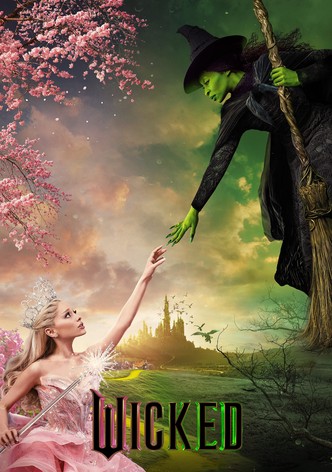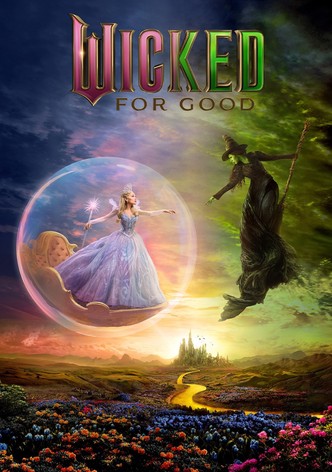From book, to stage, to the silver screen, we’re all obsessulated with the journey of Elphaba and Glinda. It’s not surprising Wicked was one of the most pop-u-lar movies of 2024, and the sequel, Wicked: For Good is now dominating the cinematic lexicon.
Obviously, Cynthia Erivo’s Elphaba is the star of the show, as much as Ariana Grande’s Glinda likes to make it all about her. The two characters have a fascinating dynamic, but what goes on around them is what truly shapes Elphaba into the iconic ‘villain’ we ultimately know her to be: Her unusual abilities and green complexion make her an easy target for the students at Shiz University, and also lead to her being manipulated by Madame Morrible and the Wizard to be the face of their, well, wicked plans.
There is no denying Elphaba is a tragic character. It’s what makes her so interesting and compelling, but there’s another character in Wicked who has a far tougher time – and yet, she flies under the radar.
Spoiler warning: If you haven’t seen Wicked: For Good yet, we are going to discuss some pretty key plot points here!
What Happens to Nessarose, Elphaba's Sister, In Wicked
Let’s talk about Elphaba’s sister, Nessarose. Admittedly, she doesn’t get bullied by her peers, largely because she’s not green. That helps her have a much lower profile than Elphaba, but she still plays a key role in the events of Wicked, and none of it is particularly positive.
For a start, she has none of Elphaba’s magical abilities. Obviously, having that talent doesn’t necessarily help Elphaba get ahead in life, but it’s still something Nessarose looks at with envious eyes, feeling like she has been denied something special herself.
Her resentment leads to Nessarose joining forces with the Wizard, rather naively, to become governor of Munchkinland. While in that role, Nessarose rules with cruelty and becomes obsessed with control and power.
On top of that, Nessarose falls in love with the Munchkin Boq, and it doesn’t end well. For her, it’s a case of unrequited love, as Boq only pretends to like her so he can get closer to the true object of his desires: Glinda. When she learns the truth, Nessarose turns to magic to try and change Boq’s mind and win his heart. The spell goes wrong, Boq ends up with no heart at all, and has to be saved by Elphaba by turning him into the Tin Man – not the ideal way for a love story to pan out really, is it?
Wicked Makes Nessarose's Downfall Even More Complex
If all of this wasn’t enough, Nessarose’s situation is even more complex and difficult because of her disability. With her mother terrified of having another green child, she eats milk flowers during pregnancy. This leads to complications in Nessarose’s birth and means she needs a wheelchair.
In the original novel, Nessarose is described as having no arms. In the musical, this is altered to be a disability in her legs, more like what we see in the movie. Interestingly, the depiction of Nessarose in the Wicked movies, where she is played by Marissa Bode, is the first time a disabled actor has taken on the role. This is clearly positive for authentic representation, and while being disabled needn’t be something that carries negative connotations by default, the story’s colouring of Nessarose’s situation, unfortunately, is.
Wicked treats it as yet another cruel element of Nessarose’s downfall, as her disability actively motivates her to do the things she does out of bitterness for Elphaba. It also blights that authentic representation as the only visibly prominent disabled character is totally mired in disaster. And the tragedy doesn’t even end there.
Nessarose's Fate In The Wizard of Oz Is Even Worse Because of Wicked
For anyone well-versed in the overarching story of The Wizard of Oz, we know Elphaba goes on to revel in the title of the Wicked Witch of the West. While her malevolent turn is a huge part of the reason why the 1939 classic is one of the best musicals of all time, people often forget about Nessarose’s fate.
Admittedly, she isn’t in the film for long. When Dorothy’s house lands in Munchkinland, she inadvertently crushes the Wicked Witch of the East as she searches desperately for Boq after his horrific transformation. As the Munchkins rejoice the demise of their oppressive leader, we the audience move on and follow Dorothy’s journey along the yellow brick road.
But, behind the celebrations, we should remember that it is Nessarose Thropp under that house, a character we’ve gotten to know and sympathise with. She may have turned wicked along the way, but she is ultimately just a young woman who was twisted by circumstance and environment. And adding insult to injury, Dorothy even steals her lovely, shiny red shoes! Elpheba suffers, but at least she gets a bittersweet ending as an anti-heroic martyr; Nessarose’s death is a punchline and her legacy squashed with her.


















































































































































































